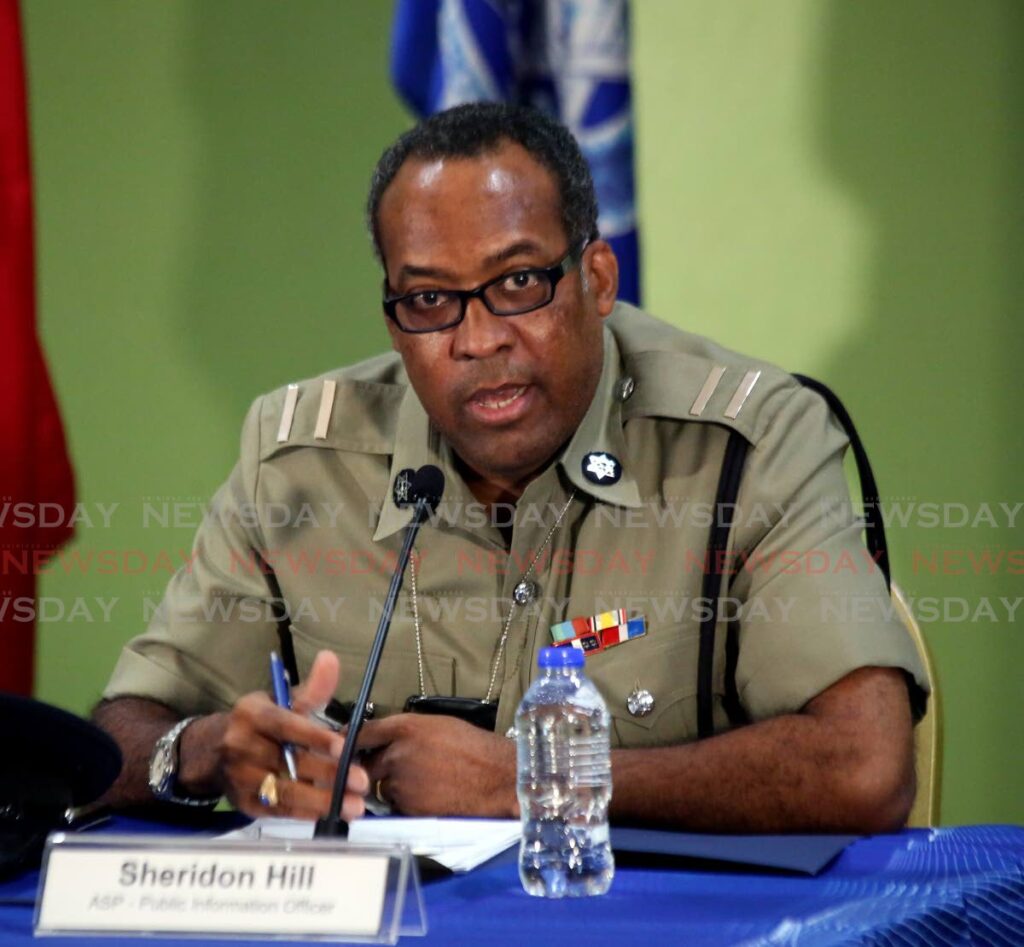
Since the full re-opening of schools, specifically the re-introduction of lower form students – forms one-three – there have been several reports of school fights and other incidents of defiance among students in various schools across the country.
Most recently, video footage of an incident involving a 15-year-old Williamsville Secondary School student who was stabbed by a classmate off the school's compound gripped the attention of the public.
These and other incidents have called the immediate attention and intervention of the Ministry of Education.
One form of action taken by the ministry has been to increase community police presence at 17 schools identified by the ministry needing immediate intervention.
Speaking during a press conference at the ministry’s St Vincent Street, Port of Spain head office on June 3, Assistant Commissioner of Police (Criminal Division) Sharon Gomez-Cooper said the police presence at schools has helped to reduce incidents almost to zero.
El Dorado West Secondary School Principal Ann-Marie Persadsingh told Sunday Newsday in a telephone interview on Friday that the presence of officers at her school has made a tremendous difference.
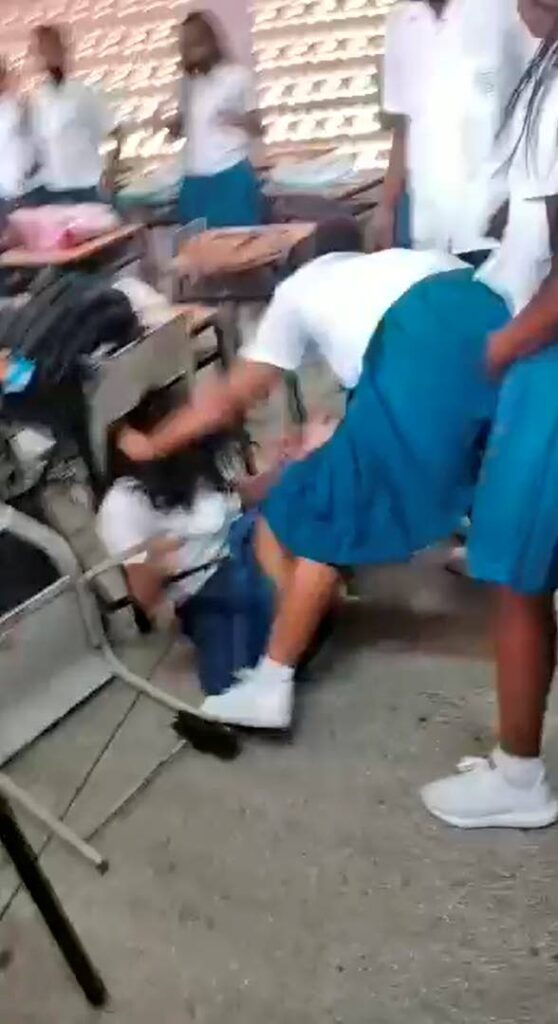
“We are exceptionally blessed to have wonderful officers because they are excellent,” she said. “They are role models and have built relationships with the students. The children are at ease to go to them to share incidents and their presence gives them a sense of security.”
Persadsingh said even when their jobs take them back on the field, the officers are still a constant source of support for the school and have even extended themselves by offering lectures to students on topics such as sex and drugs.
Persadsingh said, however, while Education Minister Dr Nyan Gadsby-Dolly said the ministry has asked police to increase patrols in all school districts, the officers at her schools have been recalled.
During a post-cabinet press conference on Thursday, Gadsby-Dolly said a meeting was held with the principals of 21 schools to discuss having dedicated personnel, including Student Support Services Division (SSSD) officers, guidance counsellors, and police officers present at those schools.
She said these schools have a high number of students who performed under 30 per cent in their Secondary Entrance Assessment (SEA) exams and require the right type of resources. She also said some students were fighting for fame so that they can be filmed and posted on social media.
“We would like to see them (the police) back because they were a stabilising factor,” Persadsingh said and pleaded with the ministry to have officers return to the school continuously.
Insp Kevin Martin, one of the officers stationed at both El Dorado West and El Dorado East Secondary Schools since the ministry’s partnership with the police, told Sunday Newsday there has been a drastic reduction in incidents at both schools since they have been patrolling.
“The officers are in the schools every day. They lectured to (students) and we would have done interventions. One officer attended both schools on a daily basis doing lectures.”
He said other initiatives such as chess and football are also used to engage the students.
Police intervention should be a last resort
Police public information officer ASP Sheridon Hill told Newsday in as much as the police would like to be involved, police intervention when an incident occurs is a last resort.
He said the role of parents and guardians in a child’s life is of critical importance.
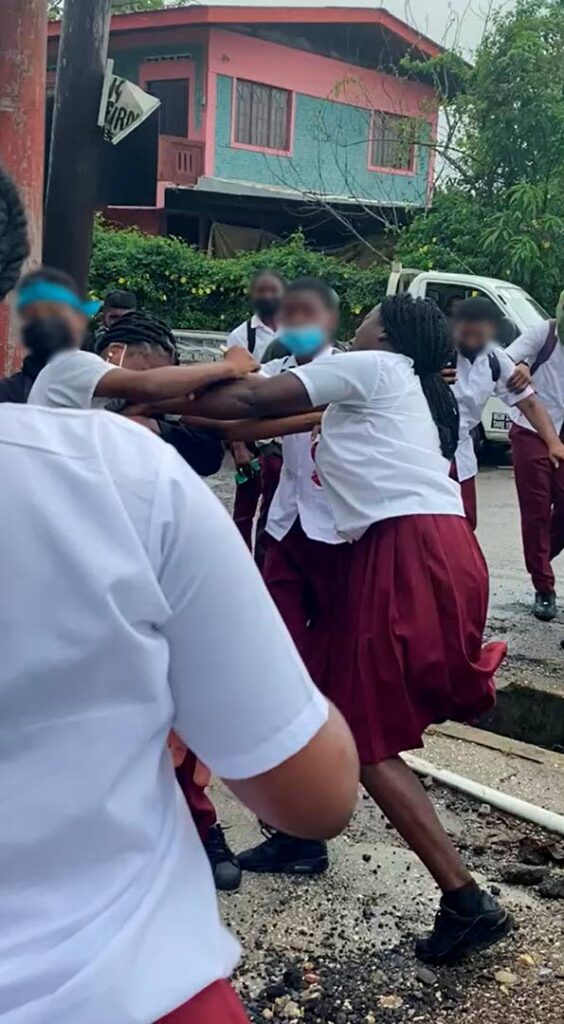
“There are 7,000-10,000 officers in the police service. At any given time, only a percentage of those officers are on duty. School time is actually when most of them are on duty.
“But we have 1.4 million people. We can’t be everywhere at every time.”
Hill said all stakeholders in a child’s life need to take responsibility for the child’s well-being.
“It takes a village to raise a child. That adage applies here. It starts in the home, with relatives, siblings, also churches, schools, teachers, etc.
“If we take our responsibility to watch children more seriously, it will have a significant impact. The police can’t step into the role of parents. We have a limited time with them (at schools) and youth clubs.”
Hill said for the most part, the police intervention programme with the ministry has been going well and he believes it should be implemented at more schools.
Addressing the Williamsville incident, Hill said from the perspective of law enforcement, matters on or off the compound are treated with the same level of urgency, professionalism and the same evidential requirements are necessary in all cases.
He said incidents at schools range from assault and battery to one of the highest offences, wounding with intent to do grievous bodily harm – the charge laid against the 15-year-old Williamsville student. She was also expelled from the school.
“People always have to remember the role and responsibility of the police. We don’t deal with civil matters. For those, you have to go to an attorney. We deal with criminal offences. We investigate and if there is evidence for a charge, then we do so.
Regarding the Williamsville incident, Hill said. “You cannot say you can’t charge her. That young girl is scared for life. There’s nothing to say you can’t press charges there.”
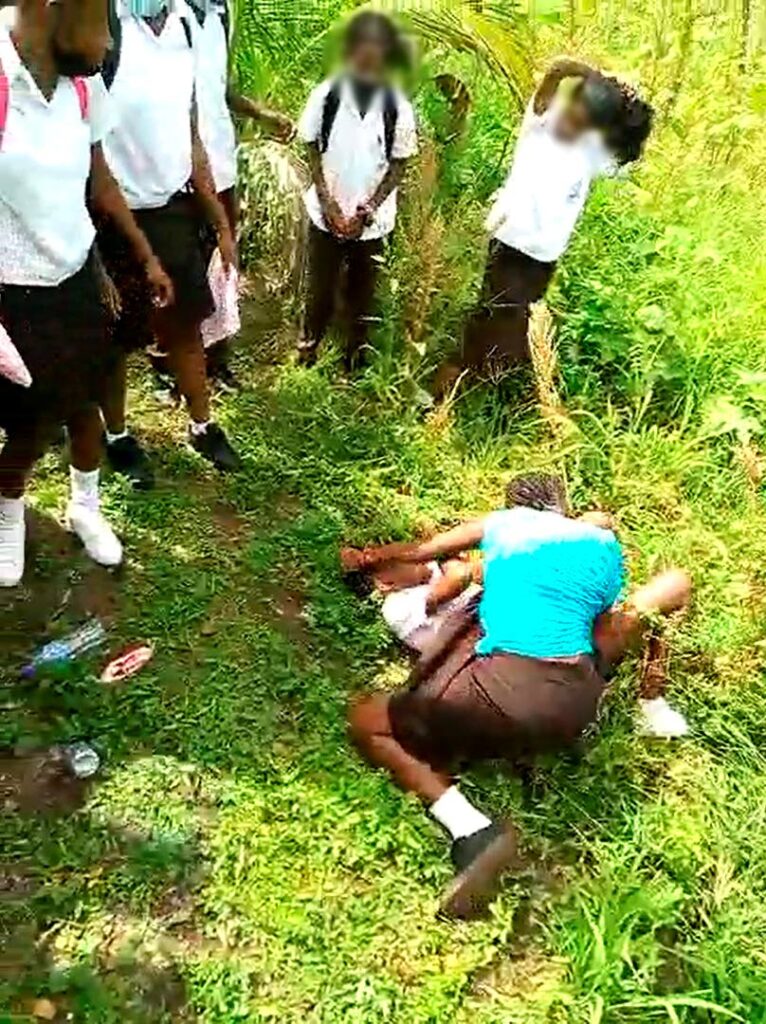
He said once children start to arm themselves and start committing serious offences, they will be charged.
“School procedures cannot in any way affect our criminal investigation. Our investigations are guided by the law, standing orders, police procedures, and the children judges' rules."
The Judges’ Rules for children stipulates how interviews and interrogations with minors are to be done. It also guides on how police should interact with children during criminal procedures.
Hill said the police hope that children learn the impact of engaging in violent behaviour and how it can affect their lives, encouraging them to stop.
Denominational schools not exempt from violence
During a post-Cabinet press conference on Thursday, Gadsby-Dolly said 1,318 students have been suspended from schools across the country since the beginning of the third term.
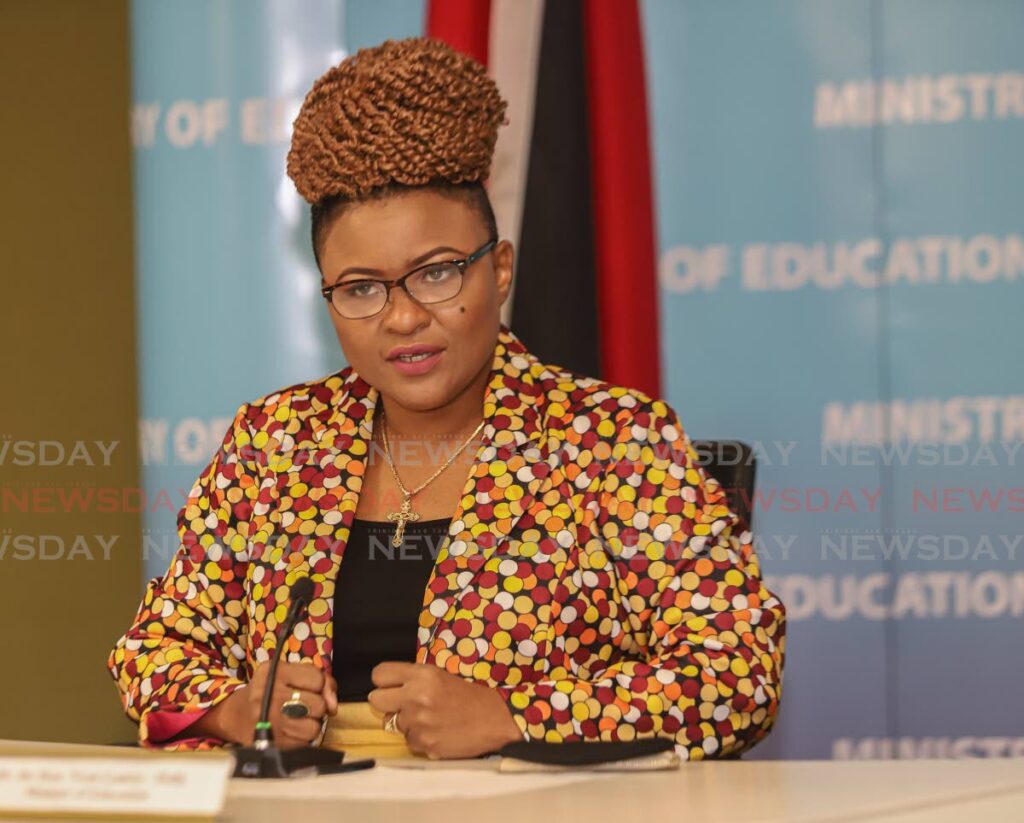
She said of those, 30 per cent are females, 70 per cent are males, with 90 per cent of students from government schools and 10 per cent at denominational schools.
Chairman of the Association of Denominational Boards of Education and the Catholic Education Board of Management Sharon Mangroo, in a brief interview with Sunday Newsday on Friday, said denominational schools are not immune to violence.
“We live in a violent society, but we do deal with it and we believe in consequences for actions and we deal with it promptly. Our principals make no joke about that.”
She said one principal recently reported to her that some of the teachers in her school feel like she is being too hard on the children.
“For (a punishment) to be the consequence it is intended to be, you need to do something with (the children).”
She said students are offered some psychological assessment and counselling as necessary before being re-integrated into the school.
“We need some assurance that it won’t happen again,” she said, adding the school always makes an effort to work with the child before reaching a decision as extreme as expulsion.
“Yes, you’re dealing with the individual child but you have to balance that with the other children in the school.”
Mangroo said, “Psychologists have been warning us (that) children have been at home for so long. All the literature said we needed time to focus on settling the children.”
She said compared to public schools which can be very large, denominational schools are smaller, making them easier to manage. “In larger schools, with no one to supervise them it can be an issue.”
She said she agreed the presence of police at schools will help the situation. "The presence of adults will help calm students.”
Mangroo said one thing that has worked in mediating indiscipline at Catholic schools is meditation.
"We do Christian meditation but meditation on the whole helps get students to calm down. It has had a positive effect on the time of the whole school. It is something to be looked at. The important thing is to first get in touch with yourself.
Principal begs for police patrols to reduce school violence - TT Newsday
Read More
Tidak ada komentar:
Posting Komentar